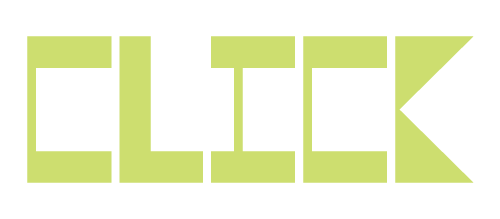At Click we provide a workspace that allows our members to drop in, find a seat, and get to work. On any given day we’ll see the desks full of people tapping away on their laptops, our meeting rooms full of networking colleagues, and offices buzzing with coworkers on conference calls. Working in a shared office boosts productivity because everyone who works here has chosen this as their 9 to 5 home (or 10 to 3, as it may be) and because there’s an expectation that this is a professional space. Schedule that meeting, put your headphones on (if that's what you like), and Get Things Done.
But Click is also a community and that comes with its own share of opportunities for professional learning and collaboration… or distraction, depending on the situation. At Click we offer a brown bag lunch series for members every other week that we call “The Chew”. You can frequently find coworkers chatting in the open work space, and there’s always the lure of the coffee machine.
According to an infographic by onlinecoursereport.com a typical worker is interrupted every 3 minutes and it can take up to 23 minutes to return to the original task. So in any given hour, you can expect only about 6 minutes to be spent doing what you came to do. Sometimes those interruptions are part of the job – a colleague needs a question answered, an important email requires attention. But sometimes being interrupted keeps you from tackling the big ideas that are so vital to the work.
In a recent post, The Crew’s blogger Jory Mackay points to the conflict between being a “maker” and a “manager” as one of the primary struggles of today’s freelance worker and entrepreneur. It’s the creating that is the reason for being, but if the bills aren’t paid, then things fall apart. Most people have an affinity for either the big picture thinking or tackling the details, but many of us are called to act in both spheres. There’s a need to find a balance between these important aspects of work. So how to do it?
Strategies for managing your workflow:
- Actively structure your schedule -
Block time for creating and planning and train yourself to respect it. Turn off your phone, silence your Slack notifications, let your colleagues know what’s up. Even a couple of hours a day set aside for big picture thinking can be productive. Also consider setting aside time to tackle administrative tasks together instead of bit by bit.
- Plan your breaks -
It turns out that taking a break can boost productivity too. Onlinecoursereport.com says, “Scheduled, disciplined breaks are different – and much more productive – than unscheduled interruptions and distractions.” Breaks help us to retain information and generate new ideas, among other things. Still don’t believe it? Click here.
- Cancel your meetings -
“Meetings are indispensable when you don’t want to do anything.” - Dr. John Kenneth Gilbraith 70% of employees say meetings don’t help them complete work and 45% of senior execs agree their employees would be more productive without meetings. If it’s not vital to getting work done, consider an alternative way to communicate. If it is critical, can you cut the time in half?
- Don’t multi task –
Stick to one activity at a time and you’ll reduce errors and distractions. According to the American Psychological Association, switching between tasks can reduce productivity by up to 40%. “Although switch costs may be relatively small, sometimes just a few tenths of a second per switch, they can add up to large amounts when people switch repeatedly back and forth between tasks. Thus, multitasking may seem efficient on the surface but may actually take more time in the end and involve more error.”
- Choose your workspace –
Do you prefer a standing desk and plants in your space? Productivity increases where there are choices in your work environment, access to natural elements, and personal effects.
- Know thyself –
Knowing your own energy patterns is indispensable. Mackay notes, “Willpower and decision making are limited resources. So if your natural energy flow is to be more alert in the morning, using up that time to answer emails, have basic meetings, and do other less intensive tasks is a waste.”

